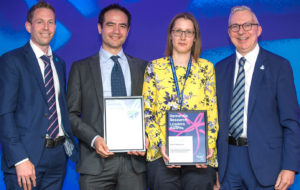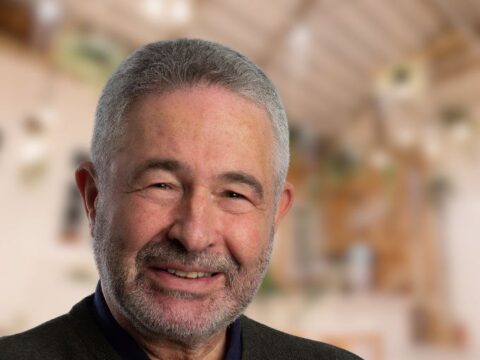Dementia Researchers Leaders Awards
The future of dementia research is only possible with the next generation of dementia research leaders. With 850,000 people living with dementia in the UK and the number set to rise to 1 million by 2021, dementia researchers are playing a vital role in our mission to beat the condition.
A key area of our work as a charity is supporting the next generation of dementia researchers. The Alzheimer’s Society Dementia Research Leaders awards recognises the contribution that early and mid-career researchers make to dementia research and people affected by dementia.
At the Alzheimer’s Society Annual Conference 2018, we welcomed over 600 delegates to the Kia Oval to hear all the latest news and developments in dementia policy and research. The winners of these prestigious awards were announced, recognising the contributions and impact these researchers have made in the field dementia research.
Winners were awarded £1,000 and runners-up received £500 each to put towards their career development over the next year. All of the nominated researchers are part of our Alzheimer’s Society’s Dementia Research Leaders programme, which provides funding and development opportunities for dementia researchers at the earlier stages of their careers.
Rising Star category
This award recognises researchers in the earlier stages of their careers that have already made great progress in dementia research and have the potential to contribute much more to the field in the future.

Winner: Elijah Mak, University of Cambridge
Elijah Mak, University of Cambridge winner of the Dementia Research Leader ‘Rising star award’ with Doug Brown (Chief Policy and Research Officer, Alzheimer’s Society) and Jeremy Hughes (Chief Executive, Alzheimer’s Society)
The panel were unanimous in their support of Elijah Mak as the winner of this category. Through neuroimaging Elijah has shown clear and specific changes in Lewy body and Parkinson’s dementia which appear different from those in Alzheimer’s disease.
Chief Policy and Research Officer, Dr Doug Brown said:
‘We’d like to praise Elijah for his commitment and phenomenal achievements so early on in his research career. We wish him all the best for his future career and look forward to continuing to work with Elijah to ensure his research has the greatest impact for people affected by dementia.’
Runner up
Dr Emma Broome

Dr Emma Broome, University of Nottingham was awarded the runners up prize for her work building evidence about the impact of the creative arts in care homes. As well as Dr Philip Weston, University College London for his work focusing on people with a genetic risk of Alzheimer’s disease.
Outstanding contribution

This award recognises researchers who are more established and have already undertaken important research that promises to improve the lives of people affected by dementia and who are likely to show great progress in the field in the future. There were two recipients of the award this year.
Winner: Dr Emma Wolverson, University of Hull
Emma is a Clinical Psychologist and all of her work relates to helping people with dementia to live well. She is dedicated to the application of positive psychology in dementia, believing that it is important to challenge negative perceptions and narratives of loss and decline.
Emma is currently leading the UK part of a European study looking at how digital technology can improve the lives of people affected by dementia. The panel were impressed by Emma’s passion for qualitative research and the way she used this to hear people’s stories and give them a voice.
Winner: Dr Daniel Davis, University College London
Daniel is a geriatrician whose research is looking at how delirium impacts on cognitive decline. The panel recognised the how phenomenally productive Daniel has been since his PhD.
Through collaborations across academic and service sectors Daniel is leading a new study which is tracking a group of older people’s cognitive and functional abilities before and after hospitalisation. The panel were also particularly impressed by Daniel’s commitment to supporting the clinical dementia research leaders of the future.
Dr Daniel Davis and Dr Emma Wolverson with Doug Brown (Chief Policy and Research Officer, Alzheimer’s Society) and Jeremy Hughes (Chief Executive, Alzheimer’s Society).
Runner up
Dr Raffaele Ferrari, University College London received the runners up prize for his work building our understanding of the genetics of Fronto-Temporal Dementia
The panel were impressed by the leadership demonstrated by Raffaele through his international collaborations and commitment to supporting future research leaders
The field of dementia research is fast moving and with developments in technology and continued collaboration across the field and the world, we are learning more every day. Alzheimer’s Society aims to fund research across the field to support people living with the condition today, to develop new treatments and ultimately a cure in the future.
- Read more about Alzheimer’s Society research funding opportunities
- Were you a delegate at Alzheimer’s Society Annual Conference 2018? We’d like to hear your thoughts about the conference, complete our short survey.
- Would you like to come to our annual conference 2019? Express your interest here.

 Print This Post
Print This Post





